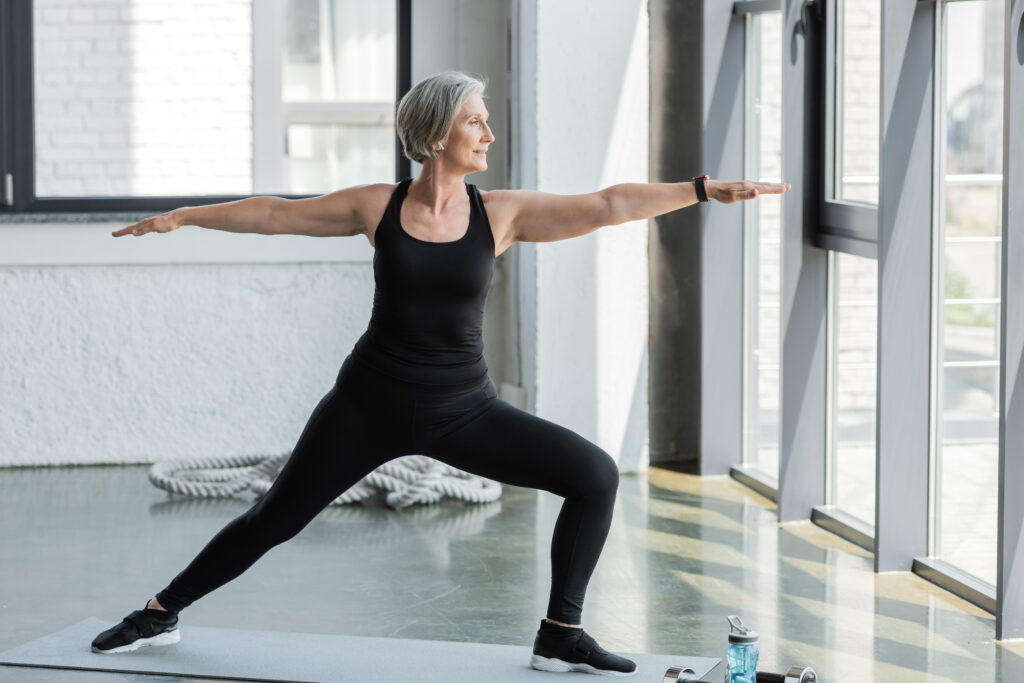As we journey through life, especially during middle age, we often ponder the key factors that contribute to longevity. While diet, exercise, and mental health are frequently discussed, a recent study brings another crucial element to the forefront: flexibility. It turns out that being more flexible in middle age can significantly lower your odds of death in the coming years. But how much truth is there to this finding? Let’s delve into the details.

The Latest Findings
A new study has highlighted that individuals between the ages of 46 and 65 who maintain greater flexibility enjoy a longer life. Conducted over several decades, this study assessed over 3,100 men and women using a unique measurement called the “Flexindex,” which evaluates flexibility across multiple joints in the body. The results were both enlightening and compelling.
From 1994 to 2022, researchers tracked the participants, and the findings were striking. Men exhibiting the least flexibility were nearly twice as likely to die during the follow-up period compared to their more flexible counterparts. Even more alarming was the statistic for women: those with the least flexibility were almost five times more likely to succumb than those boasting higher flexibility levels.
The implications of these findings are significant, suggesting that enhancing our flexibility could play a pivotal role in promoting longevity and overall health.
The Connection Between Flexibility and Longevity
Why does flexibility matter so much? The answer may lie in how our bodies function as we age. Flexibility is essential for maintaining joint health and mobility, two critical factors that contribute to an active and fulfilling lifestyle. When our bodies are flexible, we can perform daily activities with ease, reducing the risk of injury and promoting better physical function.
Moreover, the researchers behind this study have previously discovered that other simple physical abilities, such as the ability to rise from a seated position on the floor and balance on one leg for ten seconds, are also predictors of longevity. These findings suggest that our physical capabilities—especially those related to flexibility and balance—are essential markers of our overall health and can directly impact our lifespan.
Mental Flexibility: An Often-Overlooked Component
While the study focuses on physical flexibility, it’s worth noting that mental flexibility may also contribute to longevity. The ability to adapt to new situations, think creatively, and manage stress can positively influence our health outcomes. By nurturing both physical and mental flexibility, we may create a more robust foundation for a long and healthy life.
Strategies to Enhance Flexibility
If you’re interested in improving your flexibility and, by extension, your overall health, several strategies can help you get started:
- Yoga: One of the best ways to enhance flexibility is through yoga. The practice incorporates various poses and stretches that target different muscle groups, promoting flexibility and balance.
- Stretching Breaks: If you spend long hours sitting at a desk, consider taking short breaks to stretch. Gentle stretches can relieve tension in your muscles and improve your overall range of motion.
- Strength Training: While it may seem counterintuitive, strength training can enhance flexibility. As you build muscle, you also improve your joints’ stability and range of motion.
- Consistent Practice: Like any skill, improving flexibility takes time and practice. Incorporate stretching and flexibility exercises into your daily routine for the best results.
- Listen to Your Body: Pay attention to your body’s signals. If you experience pain or discomfort while stretching, it’s essential to modify your approach or consult a professional.
Final Thoughts
The findings of this study reinforce the importance of maintaining flexibility as we age. As you navigate through middle age, consider incorporating flexibility-enhancing activities into your routine. Not only could they help extend your life, but they can also improve your overall quality of life, enabling you to engage fully in your daily activities and enjoy the years ahead.
Ready to embark on your journey towards improved flexibility and health?
Book a call today to start your journey to a more vital and healthier you!







